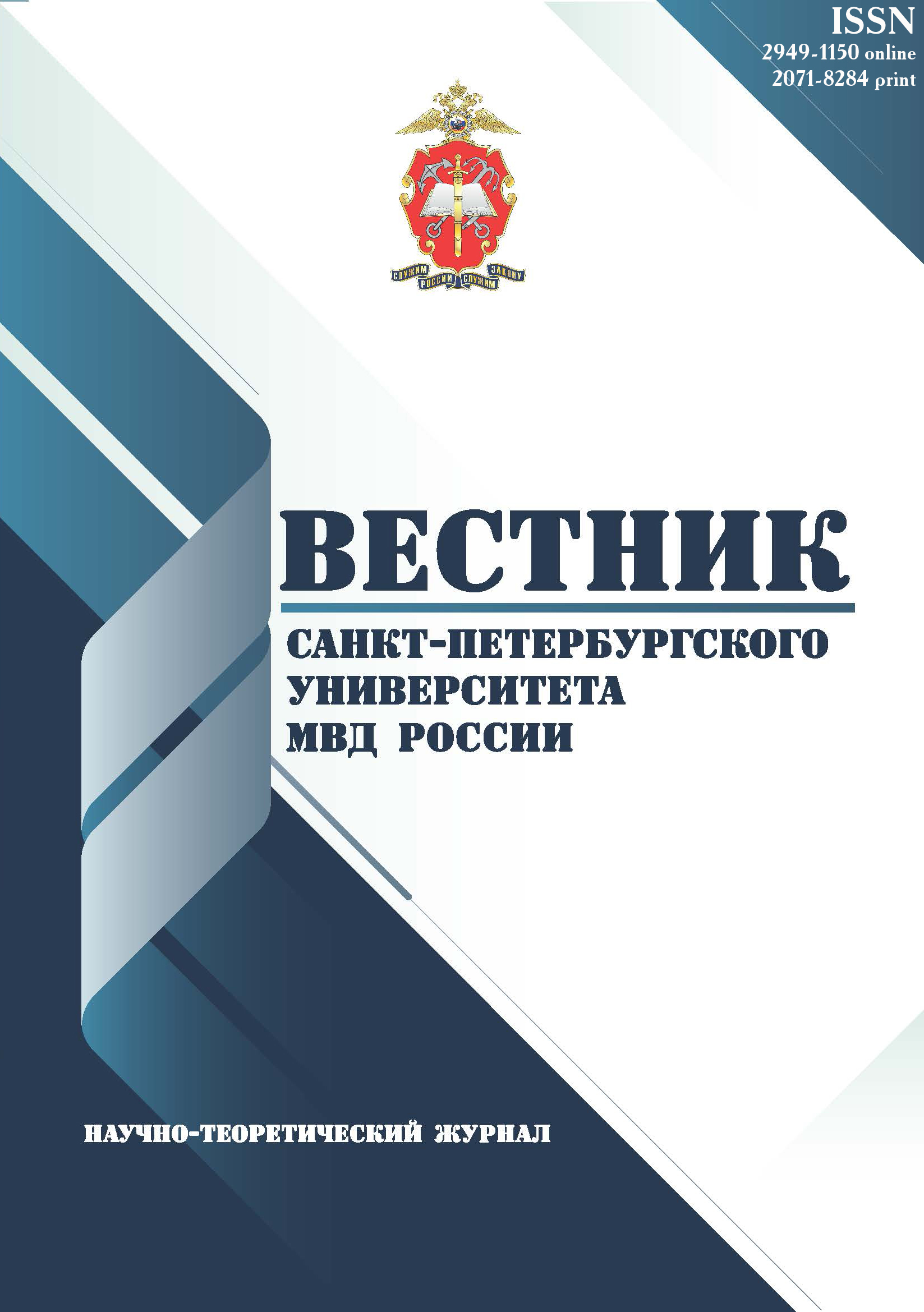Moskva, Russian Federation
UDC 341.4
UDC 343.1
Introduction. The international obligation to extradite or prosecute (Latin aut dedere aut judicare) has a complex and integrated legal nature: in relation to the fight against impunity for international crimes, the obligation de facto is a valid qualified obligation of erga omnes; it has a treaty nature in relation to the fight against international crimes. One of the main objectives of the obligation to either extradite or prosecute is to combat impunity. International treaties of a global and regional nature underpin the obligation. Methods. The study is based on the system approach, comparative, structural-functional and other research methods. Results. The study analysed the legal character of the international obligation and highlighted the key issues that arised within the implementation of the obligation mechanism aut dedere aut judicare. The study puts emphasis on classification of international treaties at international and regional levels, which a) strictly require the obligation to either extradite or prosecute, b) prioritise the implementation of a part of the obligation or deal with a part of the obligation to either extradite or prosecute, c) regulate certain areas of cooperation that can be considered as alternatives to this obligation.
international cooperation in criminal proceedings, obligation to either extradite or prosecute, transfer of criminal justice (criminal prosecution), extradition of a person for a criminal prosecution
1. Barshova O. A., Muromceva K. A. Verhovenstvo prava v mezhdunarodnyh otnosheniyah // Alleya nauk : setevoe izdanie. 2018. № 4 (20). S. 361–364. URL: https://elibrary.ru/download/elibrary_34975094_27684914.pdf (data obrascheniya: 02.07.2024).
2. Zaharenkova V. V. Osnovnye ponyatiya mezhdunarodnogo sotrudnichestva v sfere ugolovnogo sudoproizvodstva // Rassledovanie prestupleniy: problemy i puti ih resheniya. 2015. № 2 (8). S. 162–165.
3. Volevodz A. G. Mezhdunarodnoe sotrudnichestvo v sfere ugolovnogo sudoproizvodstva – uroki istorii i nekotorye problemy reformirovaniya // Biblioteka kriminalista. Nauchnyy zhurnal. 2014. № 6 (17). S. 281–288.
4. Lyahov E. G. Ekstradiciya i princip «aut dedere aut judicare»: stanovlenie i sovremennye problemy // Publichnoe i chastnoe pravo. 2012. № 2 (14). S. 165–172.
5. Skuratova A. Yu. Obyazatel'stvo «aut dedere aut judicare»: sovremennye problemy mezhdunarodno-pravovogo regulirovaniya // Mezhdunarodnoe ugolovnoe pravo i mezhdunarodnaya yusticiya. 2020. № 2. S. 3–7.
6. Guillaume G. Terrorism and International Law // The International and Comparative Law Quarterly. 2004. Vol. 53. № 53. R. 537–548; https://doi.org/10.1093/iclq/53.3.537.
7. Phuoc H. N. The obligation to cooperate in extradition, judicial assistance in criminal matters, universal jurisdiction under United Nations convention against torture1984 and Vietnam’s implementation // Kutafin University Law Review. 2019. Vol. 6. № 1 (11). P. 128–149. https://doi.org/10.17803/2313-5395.2019.1.11.128-149.
8. Korolev G. A., Semenova Yu. A. Ustanovlenie universal'noy yurisdikcii nad prestupleniyami, narushayuschimi normy jus cogens (na primere piratstva) // Zhurnal rossiyskogo prava. 2010. № 8. S. 96–105.
9. Lipkina N. N. Universal'naya yurisdikciya: mezhdunarodno-pravovye osnovaniya i problemy ustanovleniya v otnoshenii prestupleniy terroristicheskoy napravlennosti // Lex Russisa. 2018. № 6 (139). S. 92–105. https://doi.org/10.17803/1729-5920.2018.139.6.092-105.
10. Highet K. Oppenheim’s International Law Vol. 1, Peace (2 vols.) (9th edition). Ed. by Sir Robert Jennings and Sir Arthur Watts. Burnt Mill : Longman, 1992. Pp. lxxxvi // American Journal of International Law. 1994. № 88 (2). P. 383–386. https://doi.org/10.2307/2204109.
11. Moyo M. P. Final Report on the Obligation to Extradite or Prosecute (Aut Dedere Aut Judicare) (Int'l L. Comm'n) // International Legal Materials. 2015. № 54 (4). P. 758–779. https://doi.org/10.5305/intelegamate.54.4.0758.
12. Van Steenberghe R. The obligation to Extradite or Prosecute: Clarifying its Nature // Journal of International Criminal Justice. 2011. Vol. 9. Is. 5. P. 1089–1116. https://doi.org/10.1093/jicj/mqr049.
13. Meron T. The Geneva Conventions as Customary Law // The American Journal of International Law. 1987. Vol. 81. № 2. P. 353–354. URL: https://www.jstor.org/stable/2202407?searchText=&searchUri=&ab_segments=&searchKey=&refreqid=fastly-default%3A0592a5224508d21170406ebe9d8d0080&seq=1 (data obrascheniya: 02.07.2024).
14. Andenas M., Weatherall T. International court of justice: questions relating to the obligation to extradite or prosecute (Belgium v Senegal) Judgement of 20 July 2012. // The International and Comparative Law Quarterly. 2013. Vol. 62. Is. 3. P. 753–769. https://doi.org/10.1017/S0020589313000250.
15. Volevodz A. G. O nekotoryh problemah realizacii obyazatel'stva «aut dedere aut judicare» v mezhdunarodnom antiterroristicheskom sotrudnichestve // Mezhdunarodnoe ugolovnoe pravo i mezhdunarodnoe sotrudnichestvo. 2020. № 3. S. 3–9.
16. Hillebrecht C., Straus S. Who Pursue the Perpetrators? State cooperation with the ICC // Human Rights Quarterly. 2017. Vol. 39. № 1. P. 162–188. https://doi.org/10.1353/hrq.2017.0006.
17. Klevcov K. K. Osnovnye formy, vidy i napravleniya mezhdunarodnogo sotrudnichestva v dosudebnom proizvodstve po ugolovnym delam. // Rassledovanie prestupleniy: problemy i puti ih resheniya. 2022. № 1 (35). S. 91–98. https://doi.org/10.54217/2411-1627.2022.35.1.012.














